The Ministry of Health said that no new cases of whooping cough or diphtheria have been recorded; no outbreaks/clusters of dangerous infectious diseases spreading in the community have been recorded during the 6-day Tet holiday.
The Ministry of Health said that no new cases of whooping cough or diphtheria have been recorded; no outbreaks/clusters of dangerous infectious diseases spreading in the community have been recorded during the 6-day Tet holiday.
No clusters of dangerous infectious diseases recorded during Tet
The Ministry of Health's report on the health work for the Lunar New Year of the Snake said that according to reports from the Institutes of Hygiene and Epidemiology/Pasteur, the Centers for Disease Control/International Health Quarantine of provinces and cities, the infectious disease situation in the 24 hours from the morning of January 29 to the morning of January 30, the whole country recorded 33 new cases of dengue fever. In total, in the 6 days from January 25 to 30, the whole country recorded 266 new cases of dengue fever, with no deaths.
 |
| Illustration |
Regarding hand, foot and mouth disease, 12 new cases were recorded on January 29-30. In total, in the 6 days from January 25-30, the whole country recorded 91 new cases of hand, foot and mouth disease, with no deaths.
Regarding measles, on January 29-30, 151 cases of rash fever suspected of measles were recorded. In total, during the 6-day Tet holiday from January 25-30, the whole country recorded 988 cases of rash fever suspected of measles and no deaths.
The Ministry of Health also said that no new cases of whooping cough or diphtheria have been recorded; no outbreaks/clusters of dangerous infectious diseases spreading in the community have been recorded during the 6-day Tet holiday.
The Ministry of Health warned that the Lunar New Year 2025 and the early festival season will create an increase in trade and tourism, as well as consumption of food from livestock and poultry.
In addition, the cold, dry weather typical of winter and spring creates conditions for respiratory and digestive diseases to spread easily.
In addition, common infectious diseases such as avian influenza, severe pneumonia, dengue fever, hand, foot and mouth disease, rabies and measles may also increase during the Lunar New Year and New Year festivals.
To cope with this situation, the Ministry of Health has requested the People's Committees of provinces and centrally-run cities to strictly implement the work of preventing and controlling infectious diseases, especially during the Lunar New Year and festival season. The Ministry of Health has directed the competent authorities to implement a number of specific measures to protect public health during this time.
One of the important tasks is to thoroughly grasp and implement the directives of the Secretariat, the Prime Minister and the Minister of Health on the prevention and control of infectious diseases.
Provinces and cities need to direct functional agencies and local authorities to strengthen their roles and responsibilities in disease prevention and control and mobilize the participation of departments, branches, organizations, and socio-political organizations to effectively implement infectious disease prevention and control and vaccination during the holidays.
The Ministry of Health also requested the Departments of Health to urgently advise on the development and submission to the People's Committees of provinces and cities to issue the Plan for Prevention and Control of Infectious Diseases in 2025.
Localities need to allocate funds to proactively implement the plan, while closely monitoring and supervising the situation of infectious diseases in the area.
In particular, respiratory diseases such as severe viral pneumonia and common infectious diseases during the Lunar New Year such as avian influenza, dengue fever, hand, foot and mouth disease, measles and rabies need attention.
The Ministry of Health also requested provinces and cities to ensure expanded vaccination and implement measles vaccination campaigns to control the disease situation.
In particular, medical facilities need to prepare timely treatment plans for patients, minimizing cases of serious illness and death during the Lunar New Year.
Medical facilities must strictly follow the process of screening, triaging, and isolating patients, while implementing measures to prevent and control infections and prevent outbreaks in hospitals.
To prevent the disease, localities need to ensure medical quarantine at border gates, and effectively implement regular and event-based surveillance to detect suspected cases early.
Animal disease control should also be emphasized, especially in poultry, to prevent the risk of animal-to-human transmission. Authorities should monitor, detect and promptly handle animal outbreaks, and control the transportation and consumption of poultry and poultry products of unknown origin.
The Ministry of Health also requested media agencies, newspapers and grassroots media systems to increase propaganda activities on infectious disease prevention and control and vaccination.
Communication messages need to aim at changing people's behavior and raising awareness of disease prevention measures, especially for vulnerable groups such as children, the elderly and people with underlying medical conditions.
The Ministry of Health emphasized that the prevention and control of infectious diseases during the Lunar New Year and festival season is extremely important to protect public health, especially in the context of complicated disease developments in weather conditions and increased trade demand.
Risk of food poisoning when defrosting incorrectly, especially during Tet
According to Dr. Le Van Thieu, an expert in the Department of General Infections, Central Hospital for Tropical Diseases, improperly defrosting food, especially protein-rich foods such as meat, fish, shrimp and seafood, can create ideal conditions for dangerous bacteria such as Salmonella, E. coli, and Listeria to grow. This is the main cause of food poisoning and serious health problems.
Dr. Thieu said that many people have the habit of leaving food to defrost at room temperature for many hours without knowing that this is one of the common causes of foodborne infections. "Room temperature creates an ideal environment for these bacteria to grow, especially on the surface of protein-rich foods such as meat, fish, shrimp and seafood," the doctor emphasized.
Food left at temperatures between 5-60⁰C, also known as the "danger zone", creates conditions for bacteria to multiply rapidly. Within 2 hours at room temperature, the number of bacteria can increase many times, leading to the risk of poisoning.
During Tet, the demand for frozen food often increases, forcing many families to process large amounts of food. However, hasty defrosting and not following the correct procedures will increase the risk of bacterial contamination.
Dr. Thieu noted that many families defrost food by leaving it out in the air for many hours or soaking it in water, which not only increases the risk of bacterial contamination but also reduces the quality of the food.
"Using unsanitary water to soak food can cause bacteria from the water to enter the food, causing a high risk of poisoning," the doctor warned.
Shrimp and other seafood are particularly susceptible to bacteria when thawed improperly. When alive, shrimp’s natural immune system prevents bacterial growth. However, when dead, shrimp no longer have a protective immune system, creating an opportunity for bacteria such as Vibrio parahaemolyticus (which causes acute diarrhea), Listeria monocytogenes and Salmonella to thrive on the surface.
"This is why shrimp and other seafood spoil very quickly if not properly preserved," Dr. Thieu explained.
To minimize the risk of infection, Dr. Thieu recommends the following safe defrosting methods: Defrosting in the refrigerator: This is the safest method, helping to keep food fresh and limit the growth of bacteria. Food should be moved from the freezer to the refrigerator 12-24 hours in advance, depending on the size of the food.
Use cold water: If you need to defrost quickly, you can put the food in a sealed bag and soak it in cold water. Change the water every 30 minutes to maintain the cold temperature and limit bacteria. Absolutely do not use hot water because it will put the food in the "danger zone" and create conditions for bacteria to grow.
Using a microwave: Select the defrost mode of the microwave to defrost food quickly while still ensuring hygiene. However, food defrosted in the microwave must be processed immediately afterwards to avoid bacteria growth.
Defrosting properly not only helps protect your family's health during Tet but also contributes to improving food quality.
Two brain-dead people donate organs to help revive three patients at the beginning of the new year
According to news from Viet Duc Friendship Hospital, on January 30 and 31 (the 2nd and 3rd days of Tet), the hospital successfully carried out a campaign to donate organs from two brain-dead patients, helping to transplant 1 heart and 2 kidneys, reviving 3 patients in the first days of the new year.
Specifically, on January 31 (the third day of Tet), patient VTPL (20 years old, from Phu Tho) after a long time fighting end-stage kidney failure and having to undergo regular dialysis successfully received a kidney transplant from a brain-dead donor.
A kidney donated by a brain-dead stranger helped L. recover his health and continue his studies at the University. The special Tet gift is not only a new life but also hope and belief in a bright future ahead.
In addition to L.'s case, Ms. NTTH (41 years old, from Nghe An) also suffered from end-stage renal failure and had a successful kidney transplant on January 31.
Before that, Ms. H. had to go through challenging months with dialysis 3 times a week, her condition developed rapidly and seriously affected her health.
With a family of freelancers and two young children still in school, Ms. H. not only had to face the disease but also had to shoulder the responsibility of her family. However, her resilience and optimism helped her overcome all difficulties.
This special Tet gift is not only an opportunity for Ms. H. to regain her health, but also brings hope to the whole family for a brighter future.
Previously, on January 30, Viet Duc Friendship Hospital successfully performed a heart transplant for Mr. NTC (37 years old, in Vinh Phuc).
Mr. C has lived with cardiomyopathy for 10 years. It has been a long and difficult journey, but he has always been resilient in facing the disease.
Thanks to the heart donated by a brain-dead person, Mr. C has another opportunity to continue taking care of his family, continuing the path of helping the community that he has been on for many years. The new life came right on Tet holiday, bringing with it hope and infinite gratitude for the kind hearts.
Tet is a time for family reunion, but not everyone is lucky enough to be with their family. Amidst loss and separation, there are people who have chosen to turn grief into hope - donating their loved ones' organs to give others a chance at life.
It is a noble gesture, a sacred sharing, helping patients who are near death to be revived. And in the first days of the year, that miracle becomes more meaningful than ever.
Source: https://baodautu.vn/tin-moi-y-te-ngay-12-cap-nhat-tinh-hinh-dich-benh-dip-tet-d243806.html


![[Photo] The two Prime Ministers witnessed the signing ceremony of cooperation documents between Vietnam and Ethiopia.](https://vstatic.vietnam.vn/vietnam/resource/IMAGE/2025/4/15/16e350289aec4a6ea74b93ee396ada21)


![[Photo] Prime Minister Pham Minh Chinh holds talks with Ethiopian Prime Minister Abiy Ahmed Ali](https://vstatic.vietnam.vn/vietnam/resource/IMAGE/2025/4/15/4f7ba52301694c32aac39eab11cf70a4)




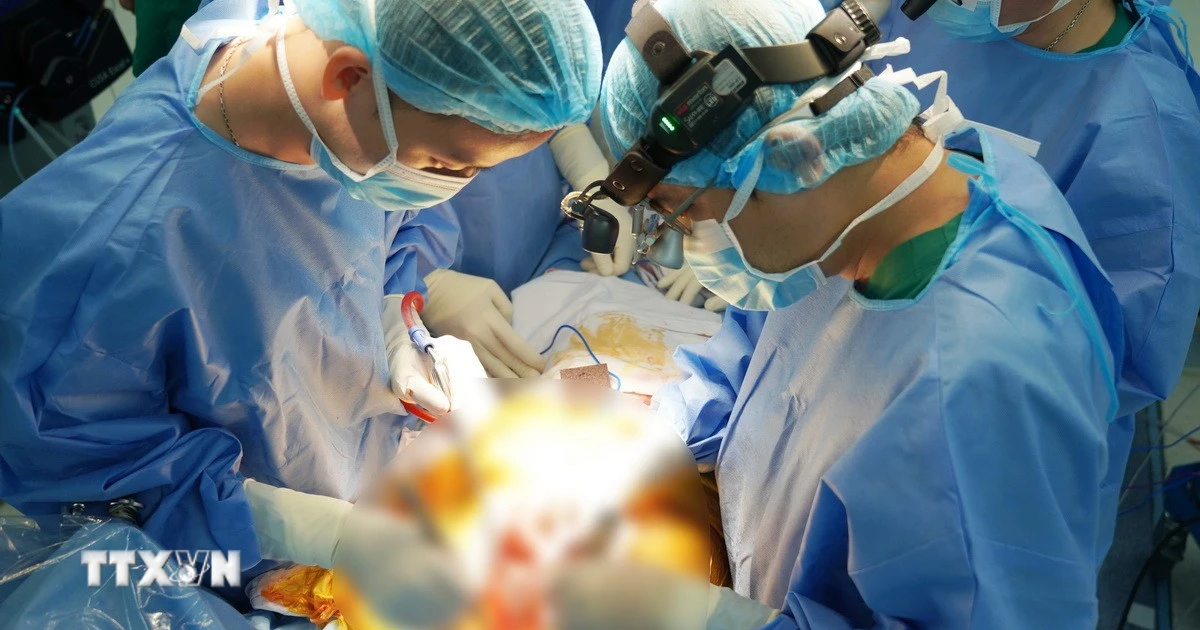











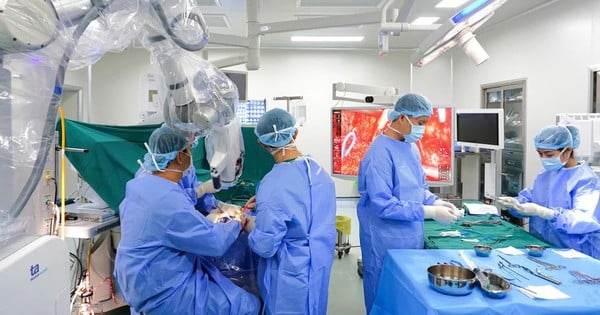


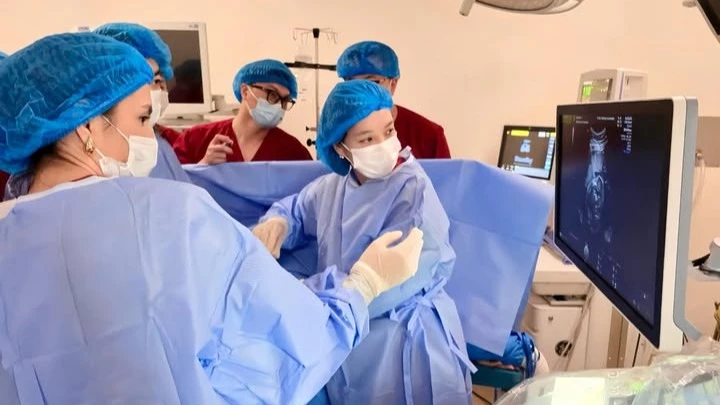








![[Photo] General Secretary To Lam receives Ethiopian Prime Minister Abiy Ahmed Ali](https://vstatic.vietnam.vn/vietnam/resource/IMAGE/2025/4/15/086fa862ad6d4c8ca337d57208555715)
![[Photo] National Assembly Chairman Tran Thanh Man attends the summary of the organization of the Conference of the Executive Committee of the Francophone Parliamentary Union](https://vstatic.vietnam.vn/vietnam/resource/IMAGE/2025/4/15/fe022fef73d0431ab6cfc1570af598ac)












































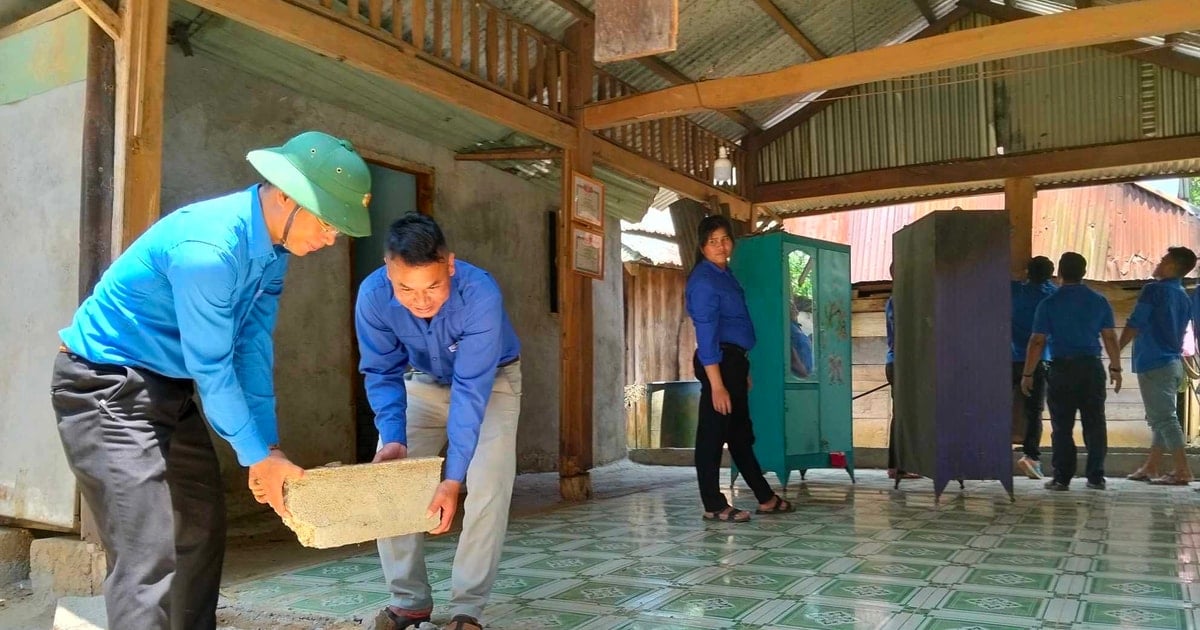








![[Photo] The capital of Binh Phuoc province enters the political season](https://vstatic.vietnam.vn/vietnam/resource/IMAGE/2025/4/16/c91c1540a5744f1a80970655929f4596)


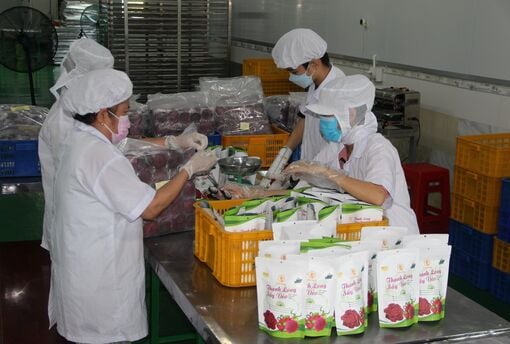





Comment (0)